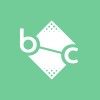
Pyrimethamine for the Treatment of Relapsed Chronic Lymphocytic Leukemia/Small Lymphocytic Lymphoma...
Chronic Lymphocytic LeukemiaSmall Lymphocytic LeukemiaIn this research study we will start by looking for the highest dose of pyrimethamine that can be given safely to CLL patients without severe or unmanageable side effects. This dose will then be used for a larger Phase II study to assess the efficacy of pyrimethamine for the treatment of CLL/SLL. Pyrimethamine is an antibiotic that is used for the treatment of certain infections. Previous research studies have shown that pyrimethamine may target a protein in tumor cells, called STAT3, which may be important for the growth of chronic lymphocytic leukemia (CLL)/small lymphocytic lymphoma (SLL) cells. Pyrimethamine can kill CLL/SLL cells in the laboratory, and we are therefore undertaking this study to assess whether pyrimethamine will result in clinical benefit or tumor responses in CLL in patients.

RO4929097 and Capecitabine in Treating Patients With Refractory Solid Tumors
Adult Grade III Lymphomatoid GranulomatosisAdult Nasal Type Extranodal NK/T-cell Lymphoma85 moreThis phase I clinical trial is studying the side effects and best dose of RO4929097 when given together with capecitabine in treating patients with refractory solid tumors. RO4929097 may stop the growth of tumor cells by blocking some of the enzymes needed for cell growth. Drugs used in chemotherapy work in different ways to stop the growth of tumor cells, either by killing the cells or by stopping them from dividing. Giving RO4929097 together with chemotherapy may kill more tumor cells.

ABT-348 as Monotherapy and in Combination With Azacitidine to Treat Advanced Hematologic Malignancies...
Acute Lymphoblastic LeukemiaAcute Myelogenous Leukemia3 moreThe purpose of this study is to determine the safety, pharmacokinetics and maximum tolerated dose of ABT-348 as monotherapy and when given in combination with azacitidine.

Pilot Study to Establish Safety & Efficacy of a Combination of Dexamethasone and Lenalidomide in...
Chronic Lymphocytic LeukemiaThe purpose of this study is to establish the safety and efficacy of a combination of dexamethasone and lenalidomide (Revlimid®) (D+L) in subjects with relapsed or refractory CLL who have failed or are unable to tolerate standard up-front therapy with regimens containing Fludarabine or in those with mutations in the p53 gene, CAMPATH-1H.

Lenalidomide in Chronic Lymphocytic Leukemia (CLL) Patients With Residual Disease
Chronic Lymphocytic LeukemiaThe goal of this clinical research study is to learn if Revlimid (lenalidomide) can help to reduce the level of leukemia in your body. The safety of this drug will also be studied.

Alemtuzumab in Treating Patients With B-Cell Chronic Lymphocytic Leukemia
Chronic Lymphocytic LeukemiaRATIONALE: Monoclonal antibodies, such as alemtuzumab, can block cancer growth in different ways. Some block the ability of cancer cells to grow and spread. Others find cancer cells and help kill them or carry cancer-killing substances to them. PURPOSE: This phase I/II trial is studying the side effects and best dose of alemtuzumab in treating patients with B-cell chronic lymphocytic leukemia.

Phase II Study of Forodesine in Subjects With Chronic Lymphocytic Leukemia (CLL)
Chronic Lymphocytic Leukemia (CLL)To evaluate the effectiveness and safety of forodesine in CLL patients

Rituximab Maintenance Versus Observation After First-line Immunochemotherapy by FCR in Older Patients...
LeukemiaRATIONALE: Classical chemotherapy does not cure advanced chronic lymphocytic leukemia (CLL) despite new drugs. Rituximab is a monoclonal antibody directed against CD20 surface antigen on B lymphocytes and leads to apoptosis of CD20 positive B lymphocytes. The highest response rate yet published in the treatment of first-line CLL has been obtained by the association of fludarabine, cyclophosphamide and rituximab (FCR). Now, the question is whether this response can be improved, as some trials showed that eradication of minimal residual disease (MRD) in CLL is associated with a longer treatment-free and overall survival. Maintenance therapy using rituximab has been recently approved as a means of prolonging remission in patients with indolent non Hodgkin's lymphoma. Maintenance therapy with rituximab could be of interest in treatment of MRD in CLL and prolonging remission and survival times. PURPOSE: The overall purpose of the study is to determine the value of immunotherapy maintenance with single agent rituximab in comparison with no further treatment (observation ) for previously untreated chronic lymphocytic leukaemia in elderly (>65 years) patients who respond to induction immunochemotherapy with FCR.

Lenalidomide and Alvocidib in Treating Patients With Relapsed or Refractory B-cell Chronic Lymphocytic...
AnemiaChronic Lymphocytic Leukemia4 moreThis phase I trial studies the side effects and best dose of lenalidomide when given together with alvocidib in treating patients with relapsed or refractory B-cell chronic lymphocytic leukemia or small lymphocytic lymphoma. Lenalidomide may stop the growth of leukemia or lymphoma by blocking blood flow to the cancer. Alvocidib may stop the growth of cancer cells by blocking some of the enzymes needed for cell growth. Giving lenalidomide together with alvocidib may kill more cancer cells.

Rituximab, Cyclophosphamide, Bortezomib, and Dexamethasone in Treating Patients With Relapsed or...
Extranodal Marginal Zone Lymphoma of Mucosa-Associated Lymphoid TissueNodal Marginal Zone Lymphoma7 moreThis phase II trial is studying how well giving rituximab and cyclophosphamide together with bortezomib and dexamethasone (R-CyBor-D) works in treating patients with relapsed or refractory low-grade follicular lymphoma, Waldenstrom macroglobulinemia, or mantle cell lymphoma. Monoclonal antibodies, such as rituximab, can block cancer growth in different ways. Some block the ability of cancer cells to grow and spread. Others find cancer cells and help kill them or carry cancer-killing substances to them. Bortezomib may stop the growth of cancer cells by blocking some of the enzymes needed for cell growth. Drugs used in chemotherapy, such as cyclophosphamide and dexamethasone, work in different ways to stop the growth of cancer cells, either by killing the cells or by stopping them from dividing. Giving rituximab and bortezomib together with combination chemotherapy may kill more cancer cells.
